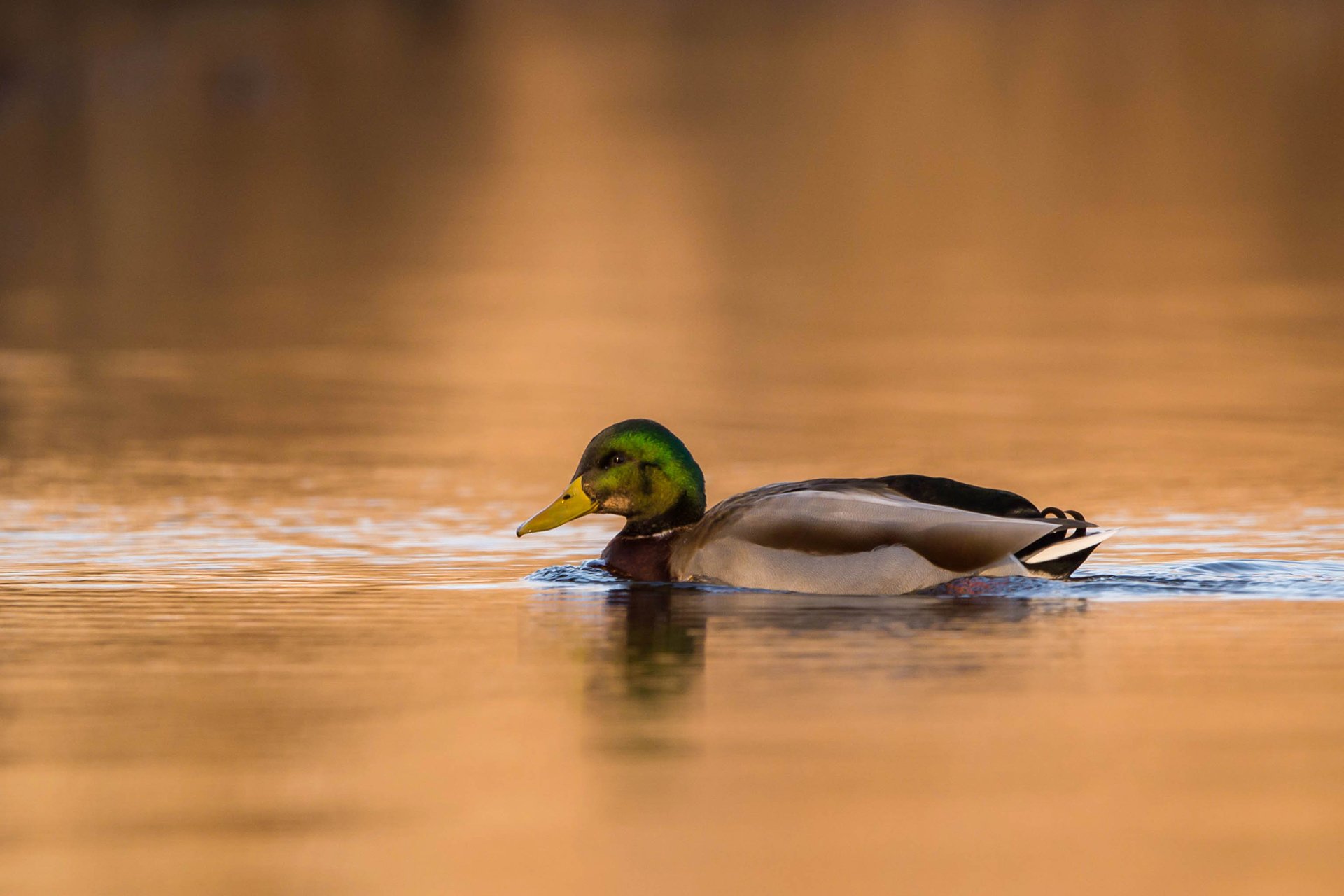Birds & Swimming Pools
There are two types of birds that often come in conflict with pool owners: ducks and common grackles.
Ducks & Pools
Over the winter, rain and snow accumulate on the covers of swimming pools, along with leaf litter and debris. By spring this has turned into a pool, creating a temporary habitat for aquatic invertebrates. Owners of swimming pools often discover that a pair of ducks (almost always mallards) has taken over this newly-created pond.
Ducks on a pool cover present no problem; they are simply there because there is food, or possibly because a female mallard is nesting under a nearby shrub. It is illegal to disturb a nest or eggs but you can prevent ducks from using the pool cover as follows:
- Remove the cover.
- If this is not possible, clear the cover of water and debris, and keep emptying the water after it rains.
- Ducks can sometimes be driven off by harassment, by clapping loudly or banging pots and pans together. This disturbance has to be repeated frequently before the ducks will give up and leave for good. If it is determined that there is a nest in the vicinity, do not harass the birds as this will likely cause the female to abandon her eggs.
- If ducks are using the pool itself there is no health risk, as pool chemicals will neutralize duck waste. To encourage the ducks to leave:
- Purchase Mylar streamers, which are available in the crepe paper section at most party stores. Place three-foot high stakes in the ground at each corner of the pool, then stretch the Mylar from stake to stake across the pool to form an “X.” The flashing, uneven movement of the streamers normally frightens the birds away.
- Place a lightweight cover, such as a solar cover, over the pool when it is not being used.
- Try the harassment techniques described above.
- Do not waste money on plastic owls or snakes; birds quickly learn that the predator is a fake.
Grackles & Pools
In late spring and summer, owners of swimming pools are surprised to observe the large common grackle (a member of the blackbird family) repeatedly dropping small white sacs into their pools. Those sacs are the excreted waste of young grackles. The adults then dispose of the sacs in the nearest body of water (often a pool), in an effort to keep a clean nest.
There are no apparent health risks associated with the fecal sacs, but it is recommended that you dispose of them before entering the swimming pool.
The best way to discourage grackles from targeting your pool is to cover the pool with a lightweight cover that can be easily removed. The good news is that this behavior only lasts as long as young are in the nest, about 2½ weeks.
If nest sites are known, you can also try thinning the trees in the fall, after the birds have left, which may make it less attractive as nest sites the following spring.



